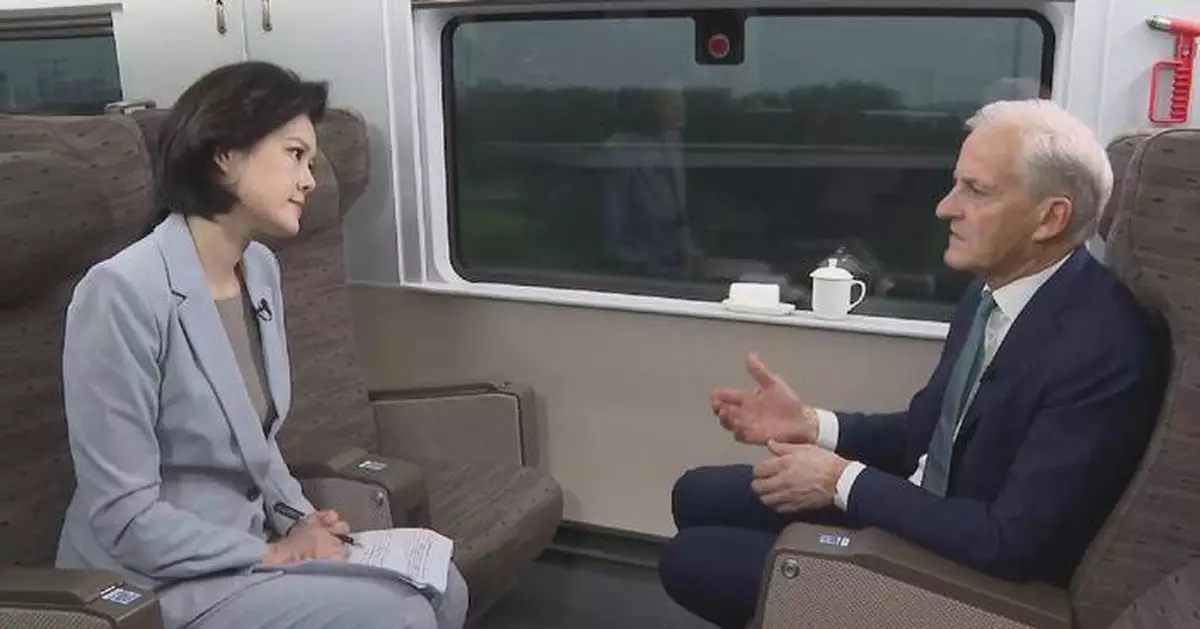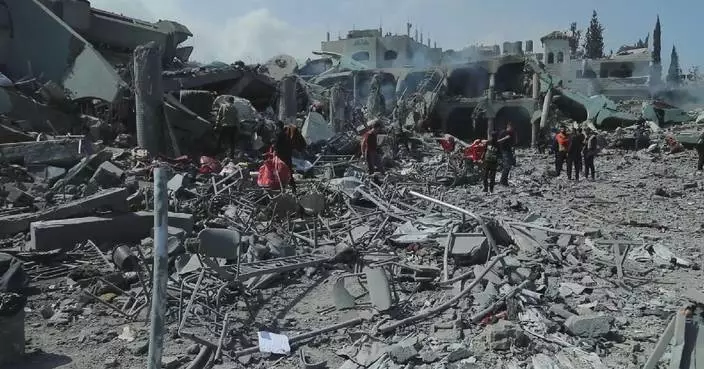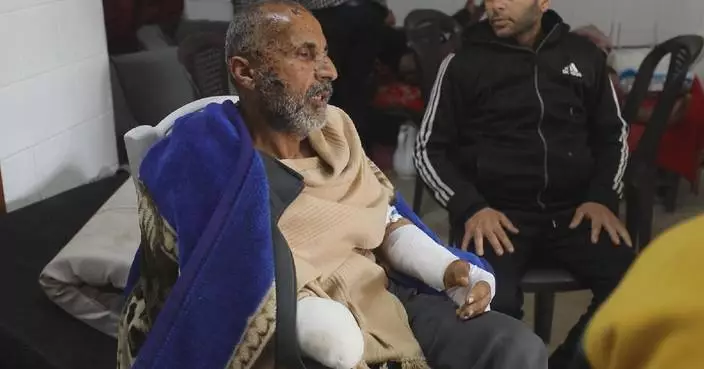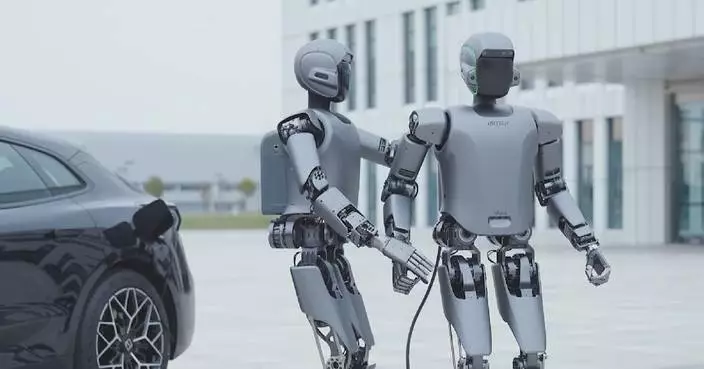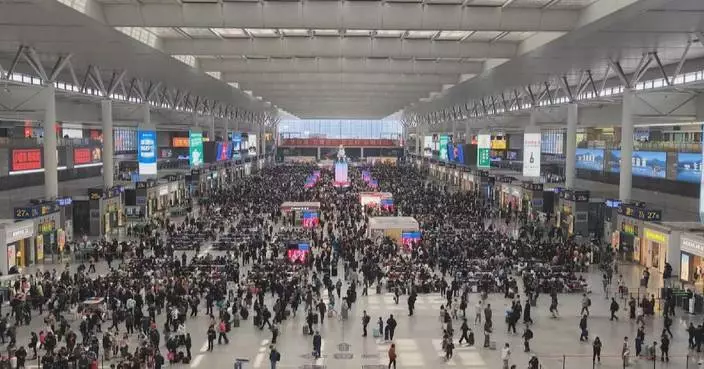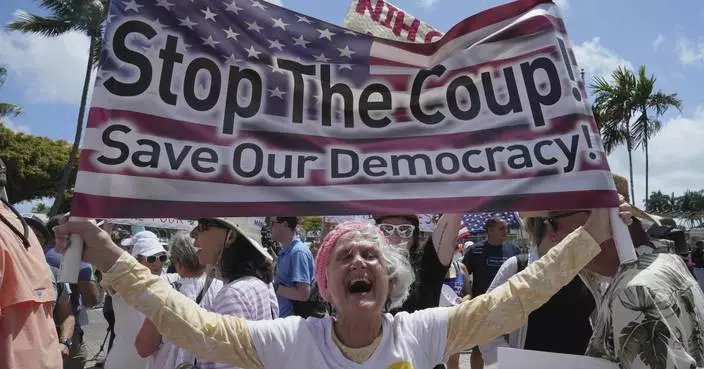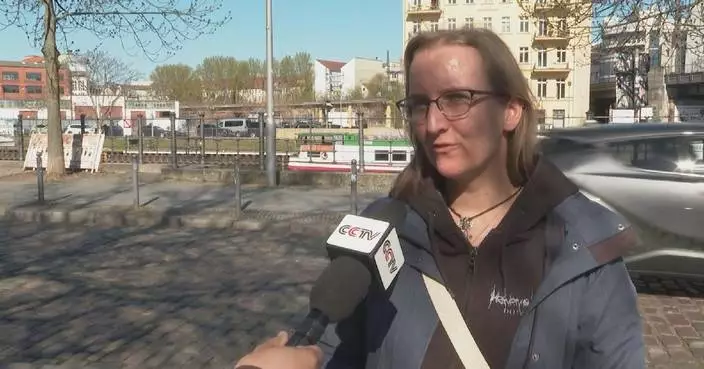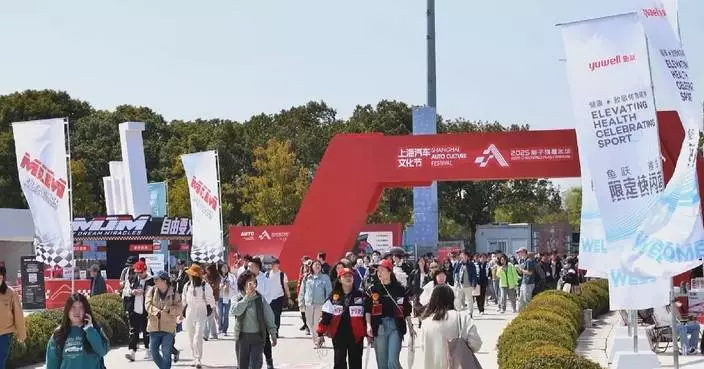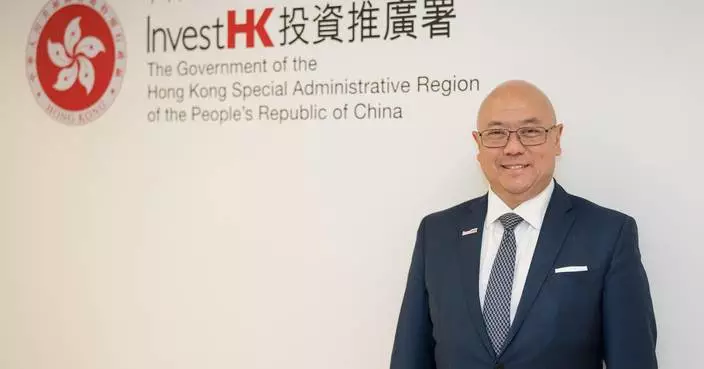Norway is not part of the European Union's trade policy in terms of imposing tariffs on Chinese new energy vehicles (NEVs) because tariffs often trigger retaliation and will benefit no one, said Norwegian Prime Minister Jonas Gahr Store in an interview with China Media Group on Tuesday.
In an interview on a high-speed train from Beijing to Shanghai, Store said Norwegian consumers should have access to all cars they wish to buy.
In the coming weeks, the EU countries are going to decide whether to impose additional tariffs on Chinese NEVs and Norway has decided not to join EU in doing that.
Store explained the rationale behind the Norwegian government's decision.
"Norway is not a member of the European Union, but we are closely associated with an agreement with the European market. So, we are not part of the European Union's trade policy. That's one reason why we are not part of this. Secondly, I think in general, one should not wish to have any of these kinds of tariffs because they are punitive tariffs, and they often trigger retaliation, and we all stand back losing from it. We don't produce cars. We are not part of this trade policy. And I don't want to put an extra burden on Norwegian consumers. They should have access to cars that they wish to buy," said Store.
He noted that electric cars now account for about 90 percent of all new cars sold in Norway.
The prime minister paid an official visit to China from Sept. 9 to 11, during which Chinese President Xi Jinping, Premier Li Qiang, and top legislator Zhao Leji met with him respectively in Beijing.
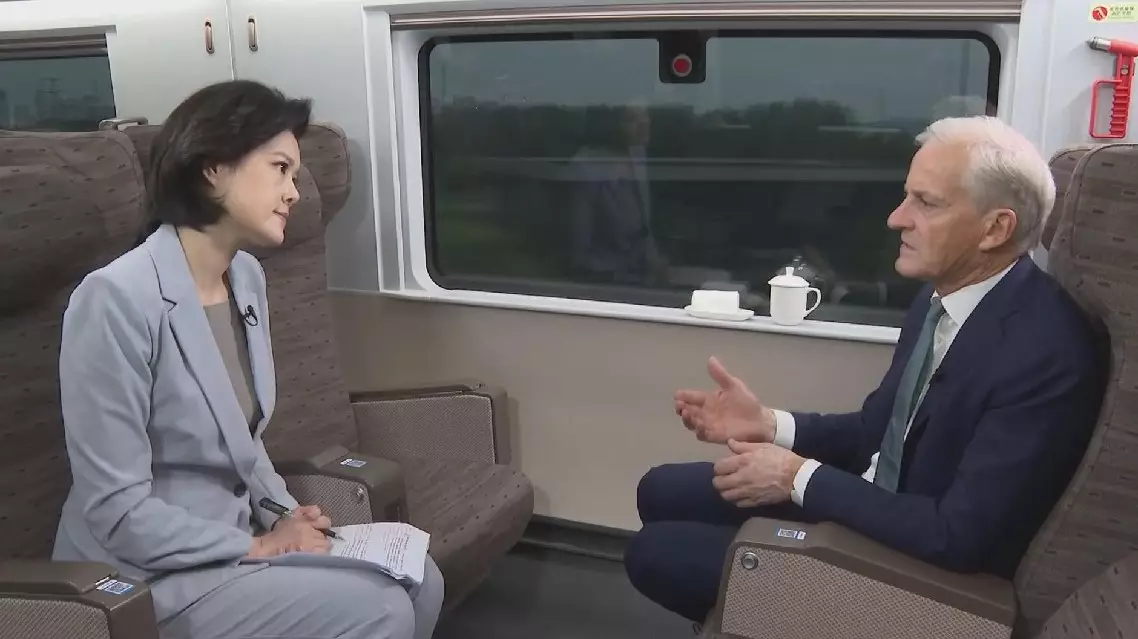
PM Store on Norway not joining EU in EV tariffs
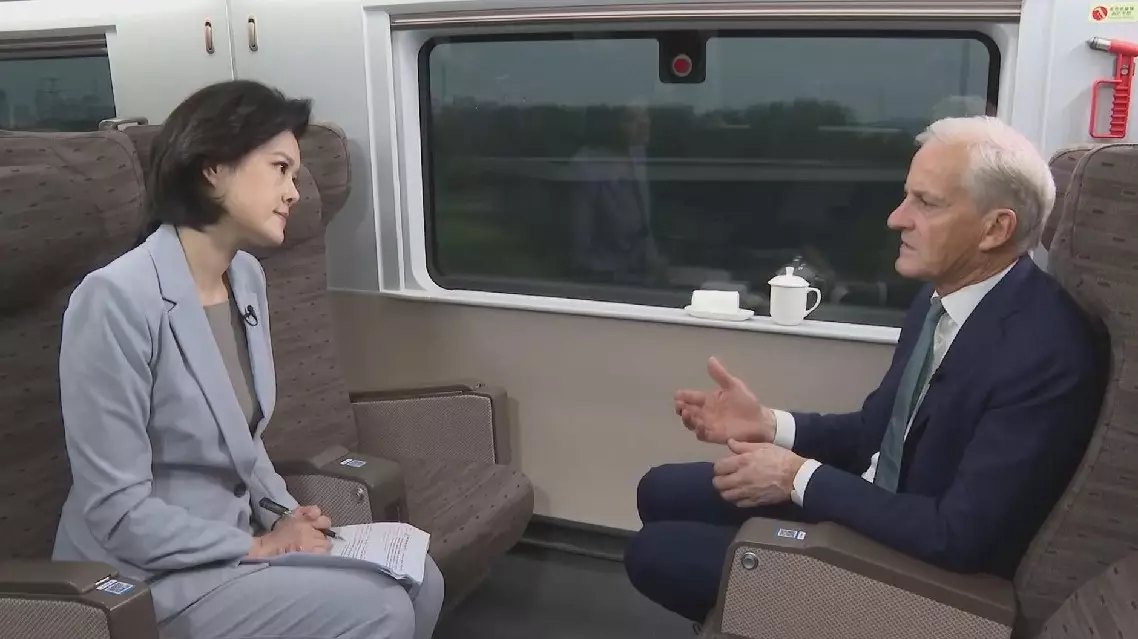
PM Store on Norway not joining EU in EV tariffs
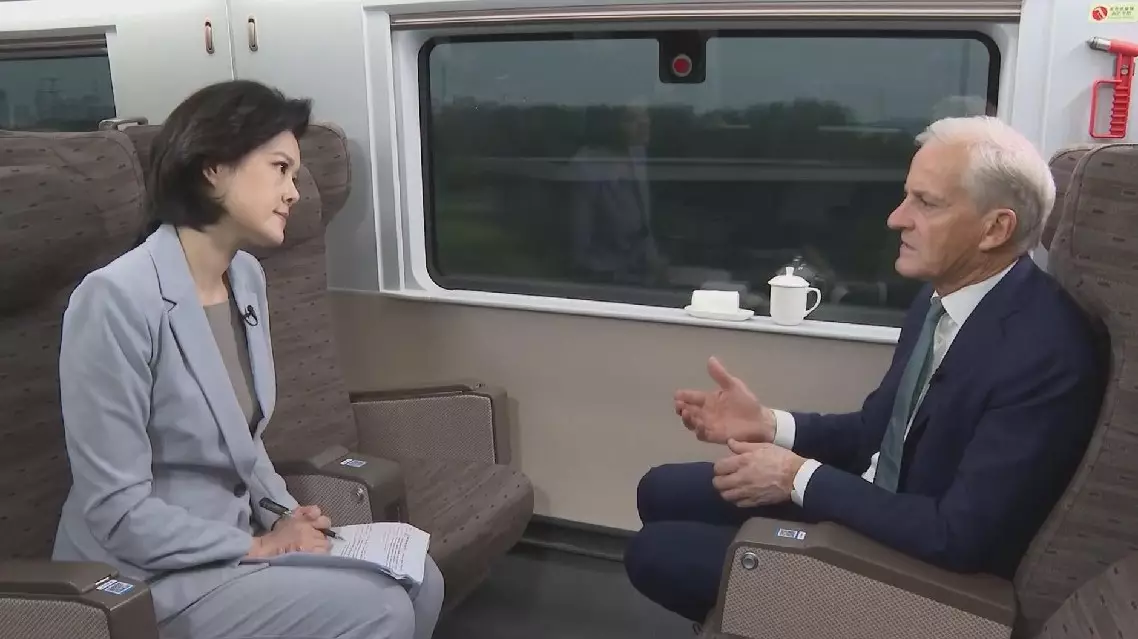
PM Store on Norway not joining EU in EV tariffs
China will firmly fight against economic hegemony, advocate justice, and stick to the right path against the sweeping tariffs by the United States, and will open ever wider to the world no matter how the international situation changes, according to a commentary of The Real Point published on Sunday.
An edited English version of the commentary is as follows:
In response to the U.S. imposition of "reciprocal tariffs" on all trading partners, China issued the Chinese Governments Position on Opposing U.S. Abuse of Tariffs on Saturday, after taking a series of countermeasures.
The thousand-word document pointed out that the United States uses tariffs as a weapon to exert extreme pressure and pursue its own selfish interests, which is a typical act of unilateralism, protectionism and economic bullying.
The paper also emphasized that China does not provoke trouble but is not afraid of trouble, and will continue to implement a high-level trade and investment liberalization and facilitation policy to share development opportunities and achieve mutual benefit and win-win results with countries around the world.
Li Haidong, a professor at China Foreign Affairs University, told The Real Point that this position paper demonstrates China's high sense of responsibility to uphold fairness and justice without fear of power politics, which will be conducive to the efforts of the international community to pool together resultant forces and continue promoting economic globalization.
Meanwhile, China's determination to promote high-level opening-up has boosted the courage and confidence of other countries to fight against unilateral bullying and injected certainty into a changing and turbulent world, according to Li.
There are no winners in a trade war and there is no way out for protectionism. When the U.S. complains that the whole world is taking advantage of it, it deliberately distorts a fact that the U.S. is the biggest beneficiary of the world's free trade system since the end of World War II.
Since the establishment of diplomatic relations with China in 1979, the United States has long been reaping substantial profits from its economic and trade ties with the country. More than 70,000 American companies have invested and started businesses in China, and exports to China supported 930,000 jobs in the United States, which maintained a huge surplus in service trade in particular.
According to data from the U.S. Bureau of Economic Analysis, in 2023, the United States exported 46.72 billion U.S. dollars in services to China, and had a trade surplus of 26.57 billion U.S. dollars in services with China.
The Economist criticized the current U.S. trade policy for ignoring the unprecedented prosperity that globalization has brought to the United States.
The U.S. arbitrarily uses tariffs to blackmail other countries at will, attempting to sacrifice the interests of the whole world for U.S. hegemony. But any exertion of pressure and intimidation are useless to China.
This year, in the face of the continuous tariffs imposed by the United States, China has introduced a series of precise and effective measures, as one of the first countries taking countermeasures. The country's move is not only to safeguard its own sovereignty, security and development interests, but also to defend the multilateral trading system and international trade rules.
The world is not a jungle society, and everything must be fair and just. Development is a universal right of all countries in the world, not an exclusive right of a few countries.
The United States has unilaterally imposed tariffs on all its trading partners, violating the WTO's Most-Favored-Nation treatment principle and attempting to subvert the existing international economic and trade order. Its nature is to pursue "America first" and "America special" and deprive other countries of their legitimate right to development.
Over the past days, the European Union, France, the United Kingdom, Italy, Japan, Australia, Singapore, South Africa, Canada and other countries have been criticizing the United States.
China's position paper clearly states that "international affairs should be addressed through consultation, and the future of the world should be decided by all countries", reflecting the common aspirations of the international community and China's consistent position of speaking and doing fair things.
While the United States continues to build "high walls around a small yard" and erect tariff barriers, China is constantly "opening its doors" and "building bridges and roads" to bring more opportunities to the world.
On March 28, Chinese President Xi Jinping met with representatives of the international business community in Beijing and reiterated that China is determined to promote reform and opening up, China's door will only open wider, and China's policy of welcoming foreign investment has not changed and will not change.
The China Development Forum 2025, held in Beijing from March 23 to 24, attracted more than 80 representatives of multinational companies, among which American companies made up the largest proportion, reaching about one-third.
A report released by global management consulting firm Kearney shows that in the ranking of foreign direct investment confidence in the next three years, China has jumped from 7th to 3rd, and ranked first in the special ranking of emerging markets.
At a time when the world is in turmoil and the United States is abusively imposing tariffs, China's position paper sends a strong message to the world about maintaining the multilateral trading system and promoting economic globalization.
The world wants justice, not hegemony. This is China's clear declaration and the common voice of the international community.
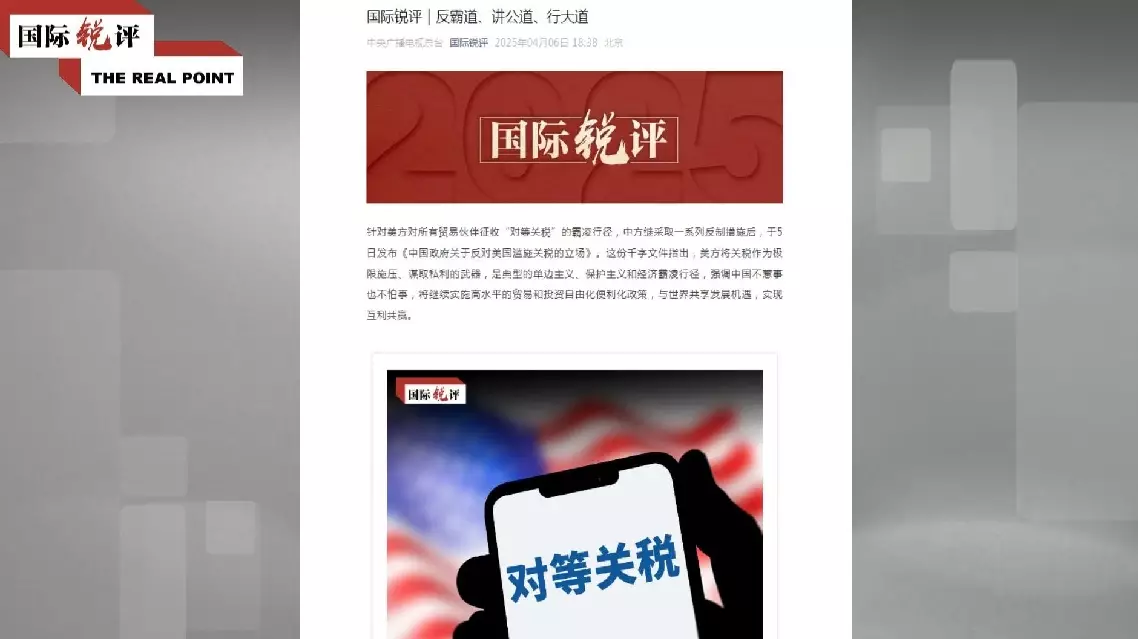
China opposes hegemony, upholds right path against sweeping U.S. tariffs: commentary





